Investing quotes are popular for a reason — they allow you to learn the essential lessons from the greatest investors of all time in just a few short sentences.
In this post, I will go over some of my favorite investing quotes. Whether you’re a new or experienced investor, you’ll find value from the sages below.
Also, I’ve included the quote images in a high-resolution format. If interested, right-click on them and save them to your computer. I’ve configured my desktop to rotate through these quotes and others daily. Like these types of posts? Check out my favorite trading quotes. Enjoy!
Warren Buffett
Beyond being one of history’s most successful investors, businessmen, and philanthropists, Warren Buffett is also a fantastic source of amusing yet insightful one-liners. We’ll start with some of his best and what they can teach us about investing.

I have this quote framed on my wall. It reminds me of how I should be investing when fear and greed are at their strongest. Being a contrarian at extremes has worked out for me in investing and trading. There’s lots of academic evidence supporting this quote, also. Whether clearing the order books for a short-term trading bounce or timing the market with volatility extremes, being a contrarian is profitable.

Reaping the fruits of your labor takes time. If you want your future self, future loved one, or even future generations to prosper, you need to do the work to set them up for success (plant the tree). You can’t afford to lose sight of the big picture no matter what investing strategy you use. Many investors miss the forest through the trees — keep your mind on the big picture and let your investments grow.

There are two ways of looking at this quote, which prove insightful. The first is that discipline is often more powerful than intelligence when it comes to investing. It is not a brilliant, get-rich-quick scheme that pays off; the slow and steady growth of assets leads to wealth.
The second way to read this quote is to warn against trying to prove yourself by being “smarter than the rest”. In a complex, fast-paced, high-stakes environment like finance, people are always looking to prove themselves. You don’t want to be one of these people. To succeed, you have to stop wasting time trying to compete with others and instead find a steady path you can stick with.
Charlie Munger
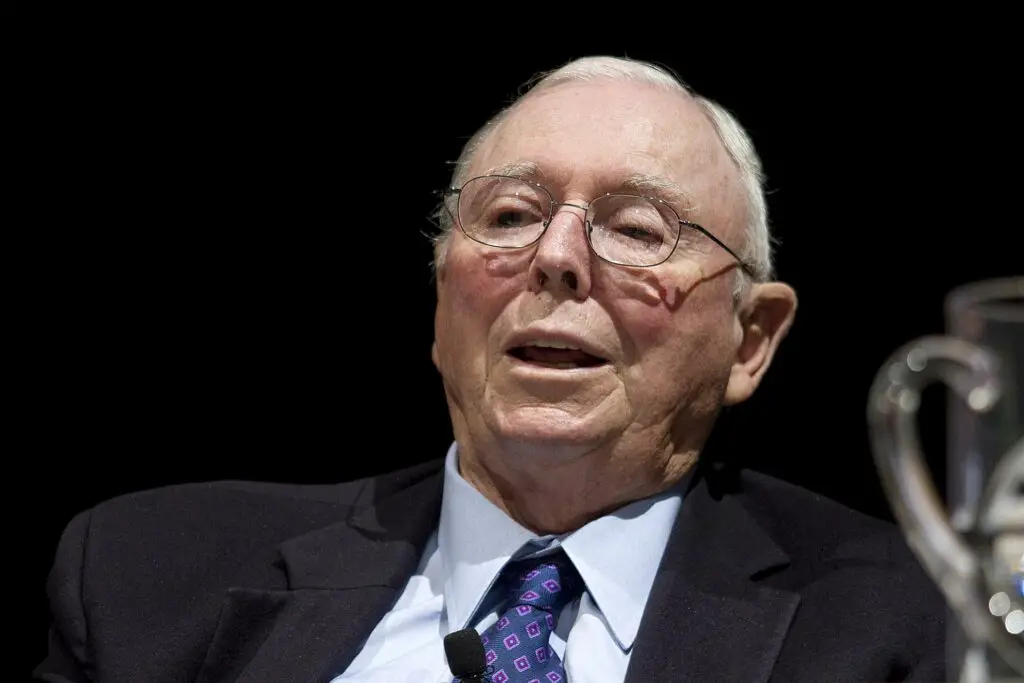
Howard Buffett, Warren’s eldest son, said that his father was the second most intelligent man he knows. Howard said that Charlie Munger, Warren’s second at Berkshire Hathaway, was the first. This means a lot, and while Charlie isn’t as charismatic as Warren when Charlie speaks, it packs a punch. Here are a few of his most famous quotes.

Everyone loves a good deal, but a good price doesn’t always mean good value. This is one of the biggest influences that Charlie had on Warren. Charlie helped Warren get over the initial purchase price of See’s Candies, and it has returned more than 8,000% since 1972, or roughly 160% per year. Warren said in his 2007 letter that “The seller was asking for $30 million, and I was adamant about not going above $25 million. Fortunately, I caved; Otherwise, I would have balked, and [2] billion would have gone to somebody else.”
This purchase led to a turning point in Warren Buffett’s investing style to valuing high-quality compounders and not just Benjamin Graham-style cheap assets.

This is fitting for a blog that discusses using data science to make trading and investing decisions.
It’s so easy to get mired in models and not see the big picture. When it comes to investing, common sense is king. It’s why simple minimum variance portfolios often outperform more complicated models and why Mohnish Pabrai doesn’t use Excel. Keep it understandable, logical, and simple — don’t be the next Long-Term Capital Management.
Peter Lynch
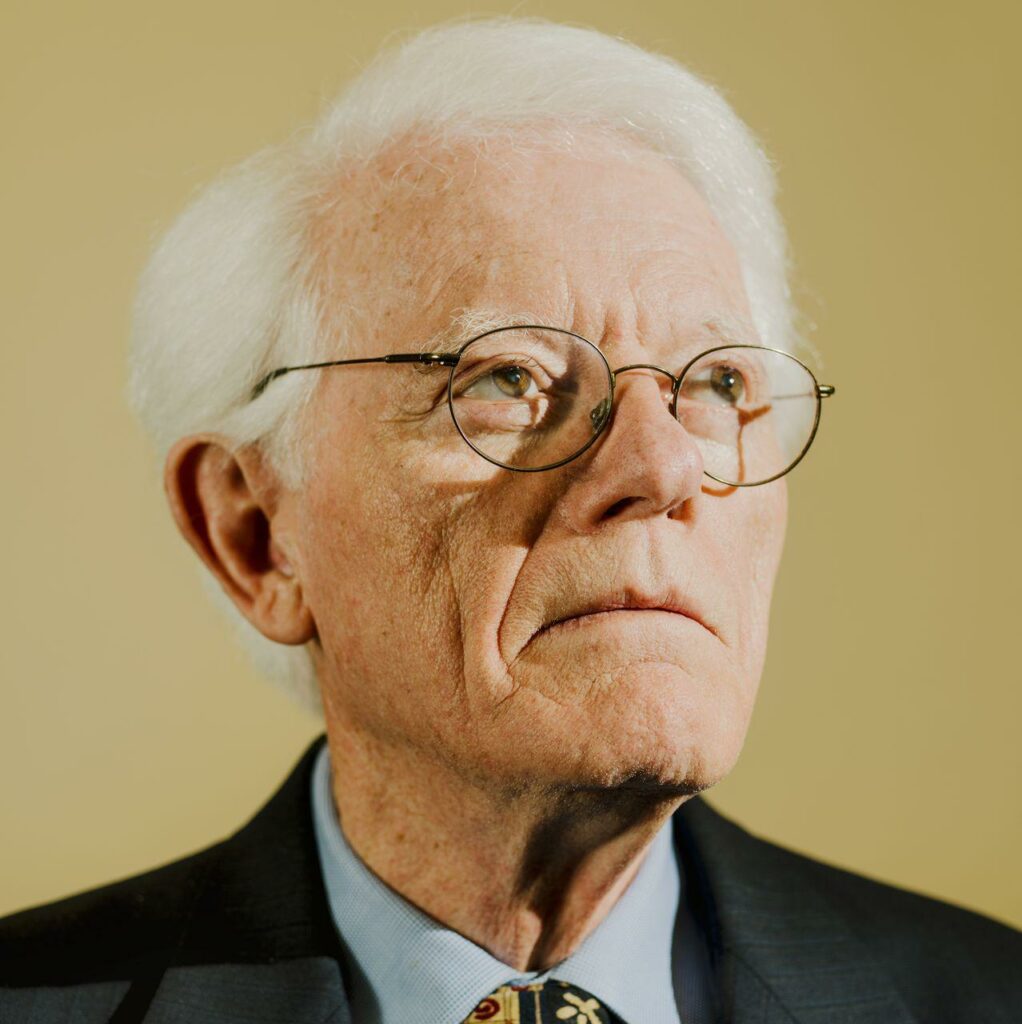
Peter Lynch is a former manager of the Magellan Fund and is one of history’s best-known investors. You could even argue that Lynch, not Buffet, is the greatest investor of all time.
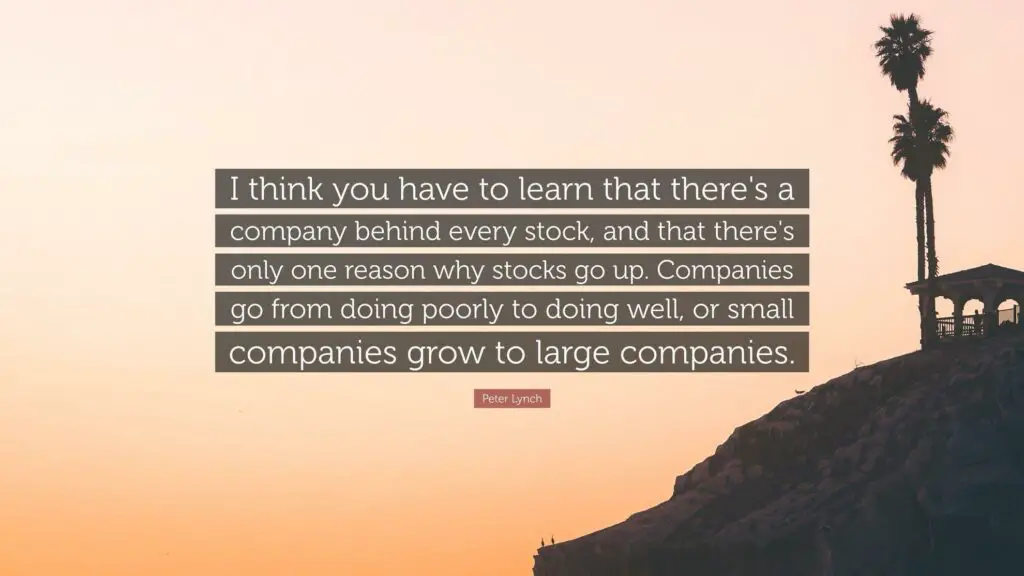
Peter Lynch was well-known for vocalizing his belief that investors must always understand the investments they hold. This quote is one example of his straightforward approach to investing.
The media loves to create elaborate reasons why stock prices fluctuate, and while short-term fluctuations may have their reasons, over time, there is one reason why stock prices go up – companies growing and improving.

It’s so critical to understand the underlying economics of the business. Great businesses get to make many easy choices, whereas weak companies have to make frequent, difficult decisions. When a management with a reputation for brilliance tackles a business with a reputation for bad economics, the reputation of the company remains intact.
Perhaps I’ve been reading too many quotes, but the above is paraphrased from Warren and Charlie. Long story short, buy great businesses at a fair price — less can go wrong, and the upside is typically higher: Think See’s Candies.
Benjamin Graham
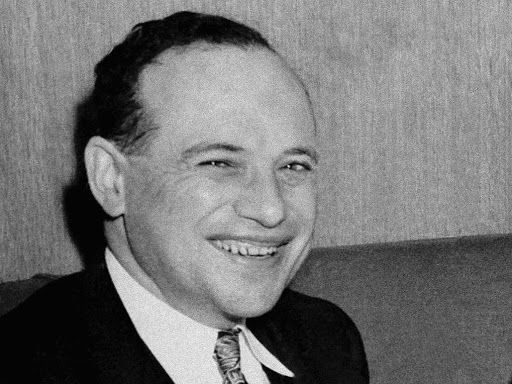
Benjamin Graham is often called “the father of value investing.” Warren Buffet has called Graham’s book, The Intelligent Investor, “the best book on investing ever written.” Though the book was first published in 1949, it is still considered one of the books every investor should read.
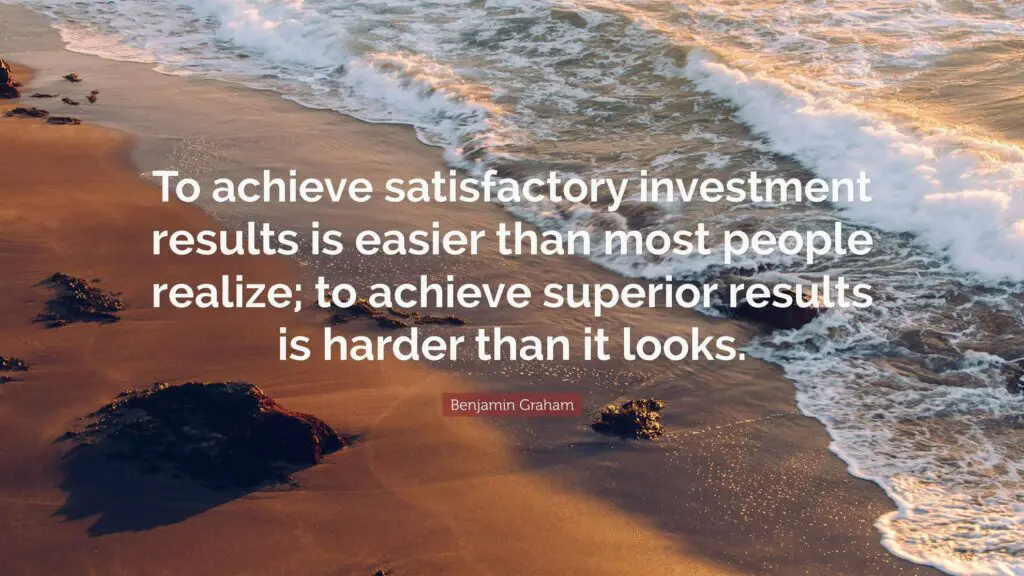
The average annual return of the S&P over the last 90 years has been almost ten percent. This means that if you invested $25,000 and were a completely average investor (with returns matching the historical annual return of the S&P), without investing any more money, after 30 years, you would have $413,057.
Therefore, an “average” investor who does no better or no worse than the market can increase his money by 16-fold if given enough time. Simply matching the market’s returns can provide satisfactory investment results, but achieving superior results is where things become much more difficult.
And in this case, the average isn’t so average. Most active investors underperform passive investment strategies.

Though only six words, there’s a lot of good advice here. First, don’t get caught up in unrealistic bull markets. Secondly, don’t let your own emotions cloud your investment decisions. Finally, base your investment decisions on the numbers. While there is always a business and market narrative to understand, you must connect that narrative to numbers.
Sir John Templeton
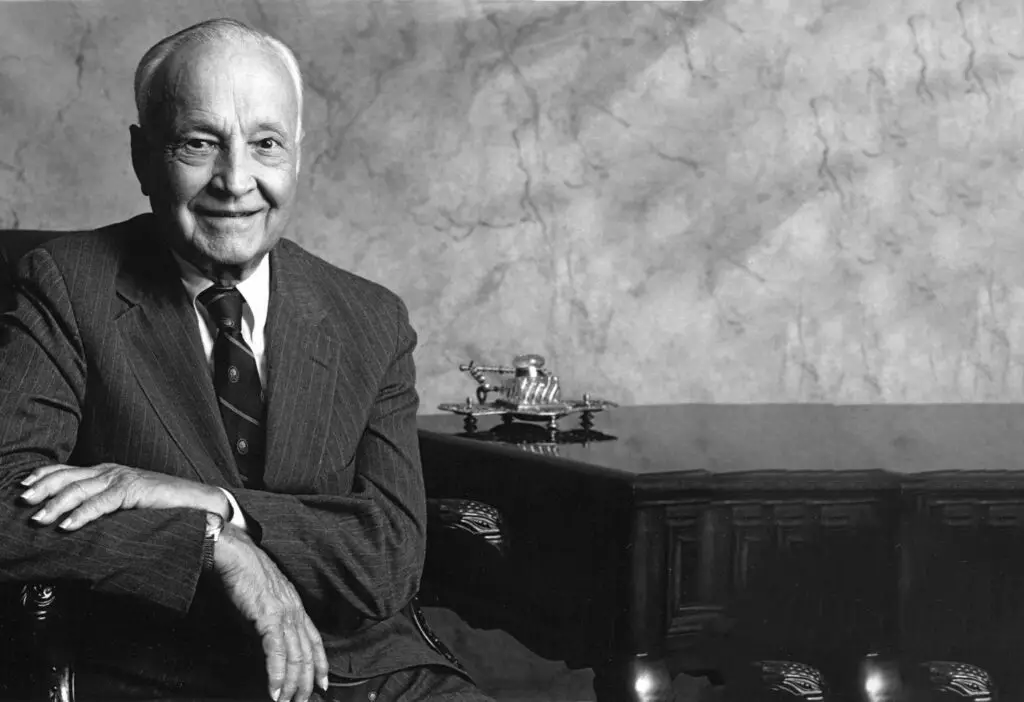
Sir John Templeton was a mutual fund manager who became one of the most successful investors of the 20th century. Templeton founded the Templeton Growth Fund and is best known as an international value investor. In 1999, Money magazine called him “arguably the greatest global stock picker of the century.”
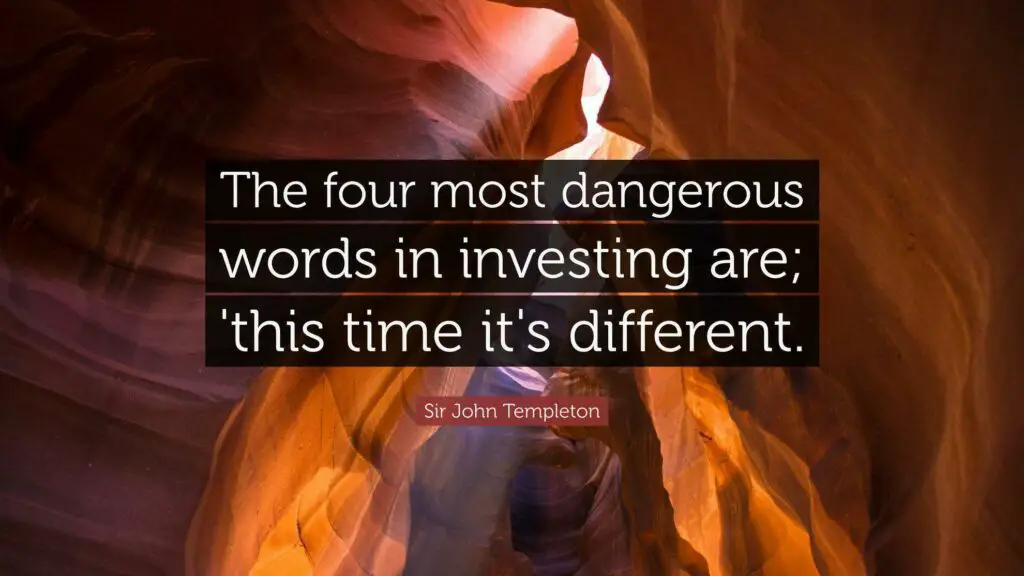
You can bet a bubble is about to burst when media personalities begin pointing toward data proving that there is no bubble. They claim it may look like a bubble, but they always have a logical-sounding reason for why this time it’s different. The reality is that history repeats itself. The longer we try to delude ourselves into thinking otherwise, the worse the position we put ourselves in. Valuation matters — don’t get caught confusing clicks for cash flows.
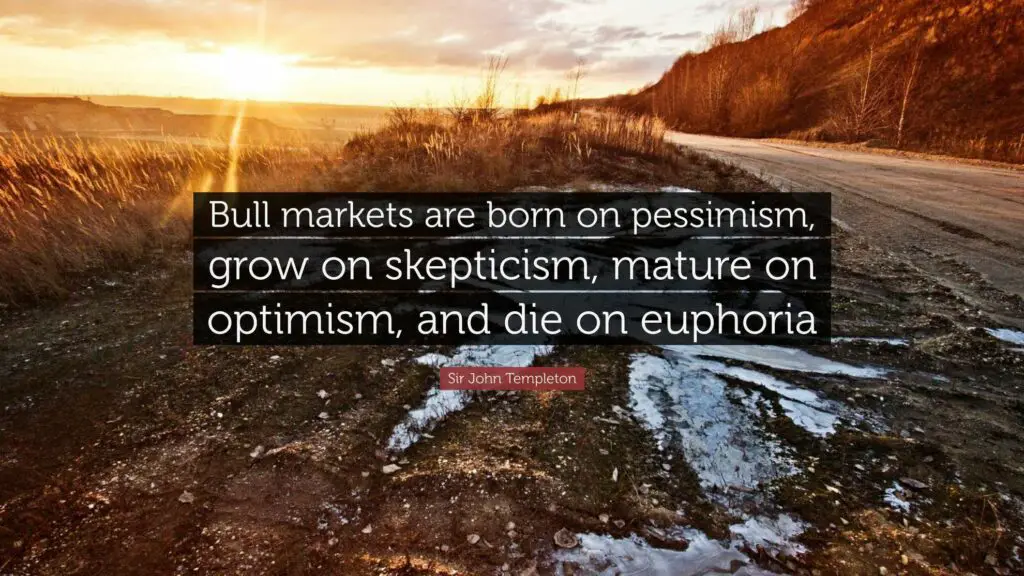
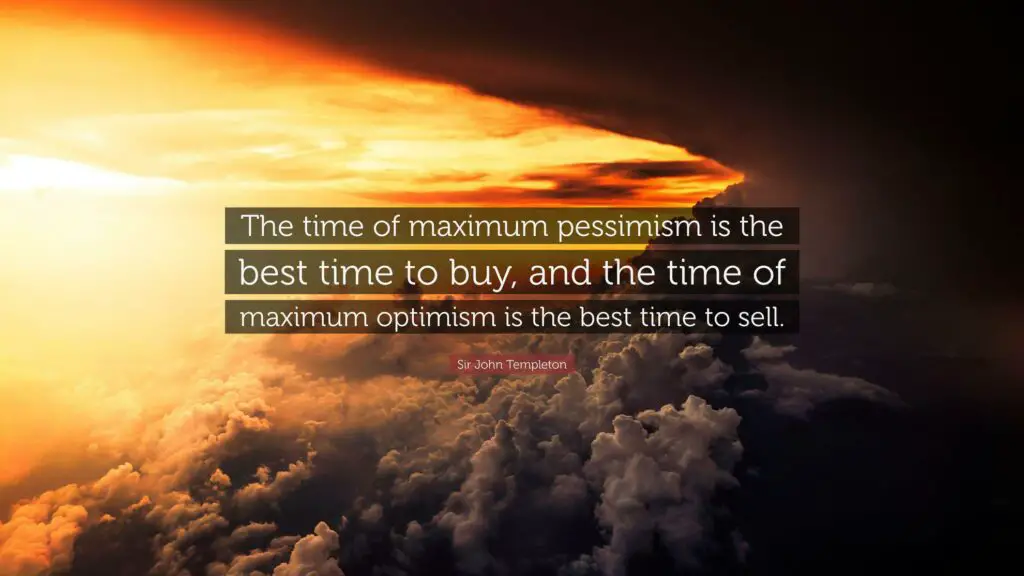
These are two quotes that work well together.
A bull market begins when a bear market comes to an end. Why? During a bear market, valuations are depressed, and there’s a disproportionate amount of investable cash sitting on the sidelines. In other words, every seller has sold.
As the bull market continues, spirits begin to rise, and that investable cash gets put to work, but it can’t last forever. When stocks have soared, and everyone who can buy already has, I’m sure you can guess what happens next. This behavior of individual investors leads them to underperform their benchmarks consistently.
John Maynard Keynes
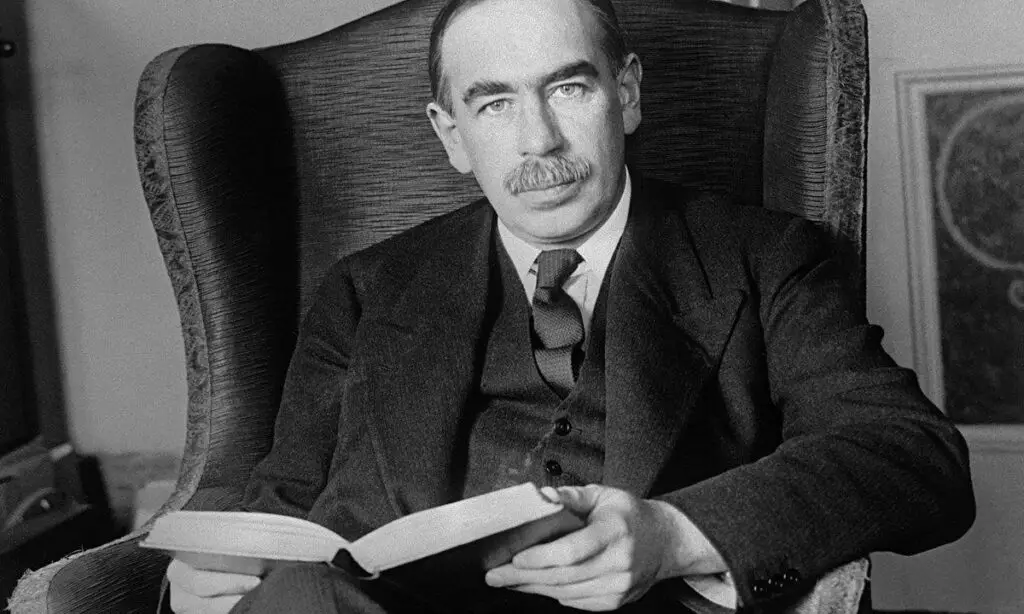
Next up, we have a couple of great lines from the British economic theorist John Maynard Keynes, for whom Keynesian economics is named. Though Keynes passed away almost seventy-five years ago, his words remain as accurate today as while he was living.

At some point in your investing career, you will be wrong. While you don’t want to be wrong consistently, being wrong sometimes won’t harm you. BUT when you are wrong, accept it and make the proper corrections. More often than not, far more harm comes from refusing to recognize and fix an error promptly than from the mistake itself.
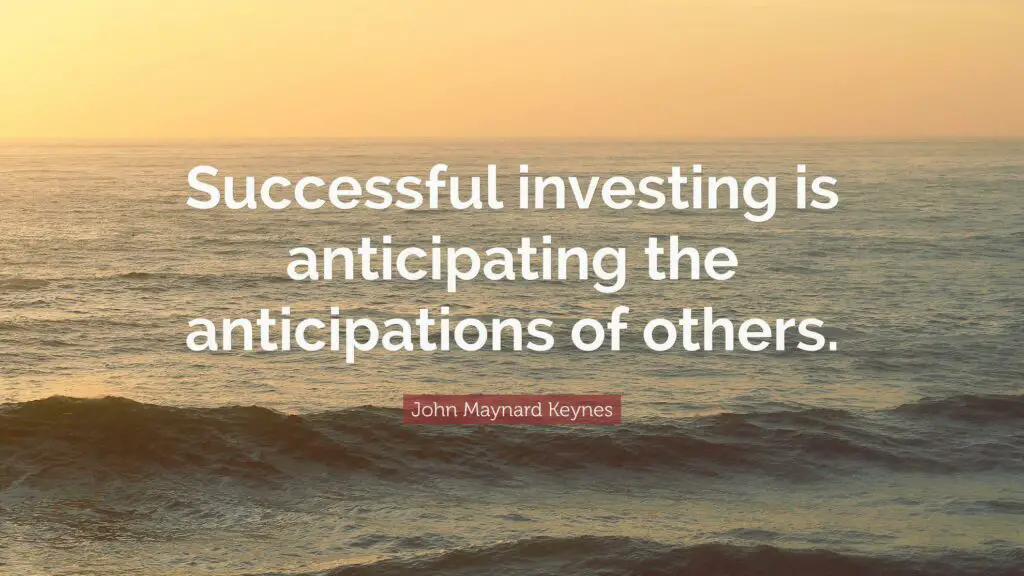
It is often easy to lose sight of the big picture, as with any profession. The language of investing often helps hide it even further. We talk about stocks rising or falling as if of their own accord, but we must never forget that other investors cause these movements.
John “Jack” Bogle
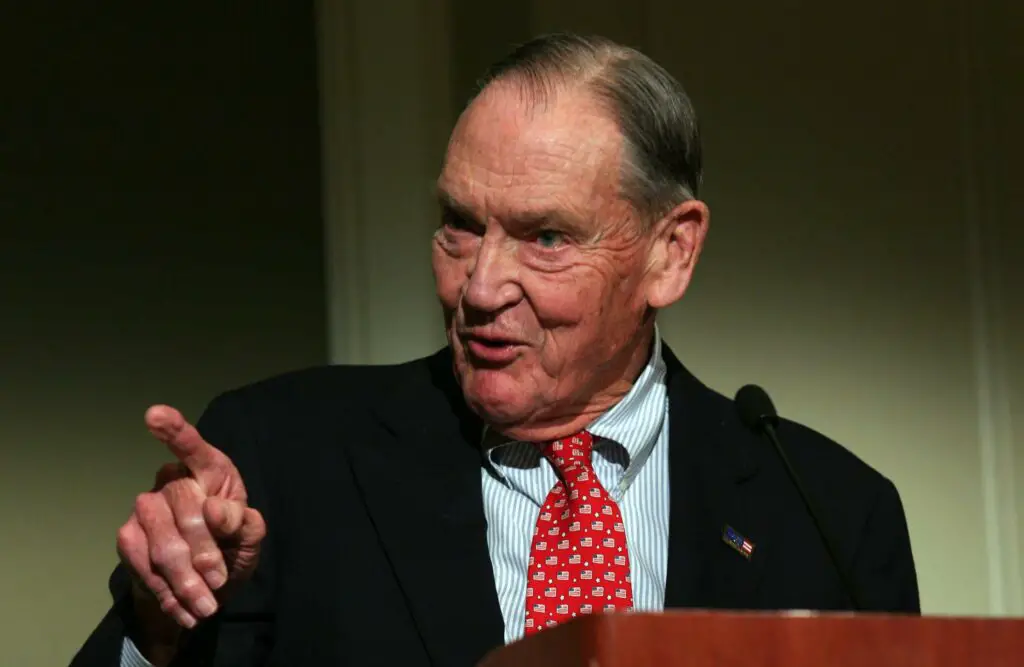
John Bogle, commonly known as Jack Bogle, founded the Vanguard Group and was a major force behind making index investing the popular option it is today. And while Bogle didn’t run a fund, he understood the needs of passive index funds and arguably added more to the pockets of individual investors than anyone else in history.
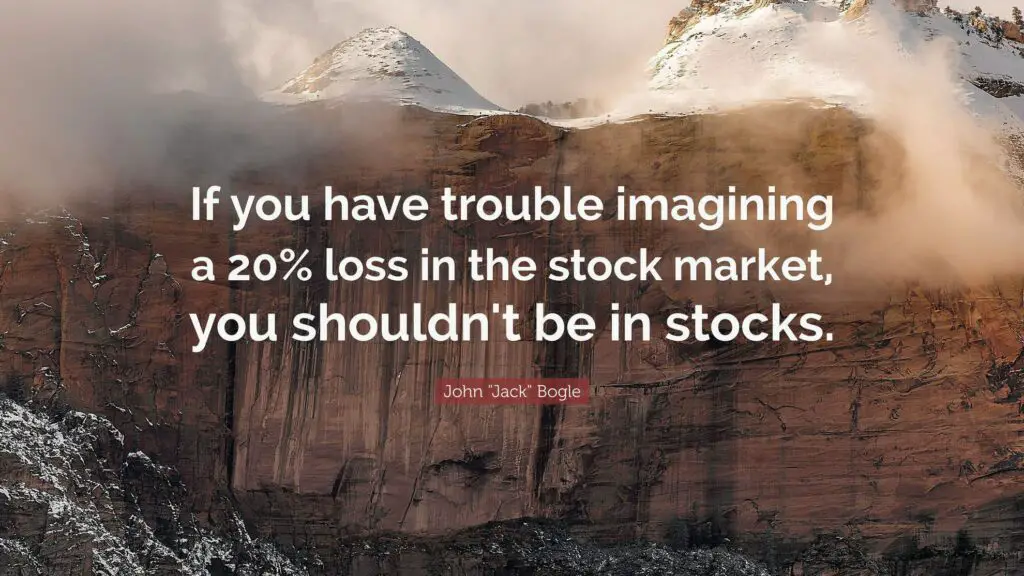
Investing in stocks comes with volatility and risk. No matter how good you are at picking stocks, the value of your investment will rise and fall. This quote from Bogle reminds us that these drops will happen, and to be a good investor, you must be prepared for them.
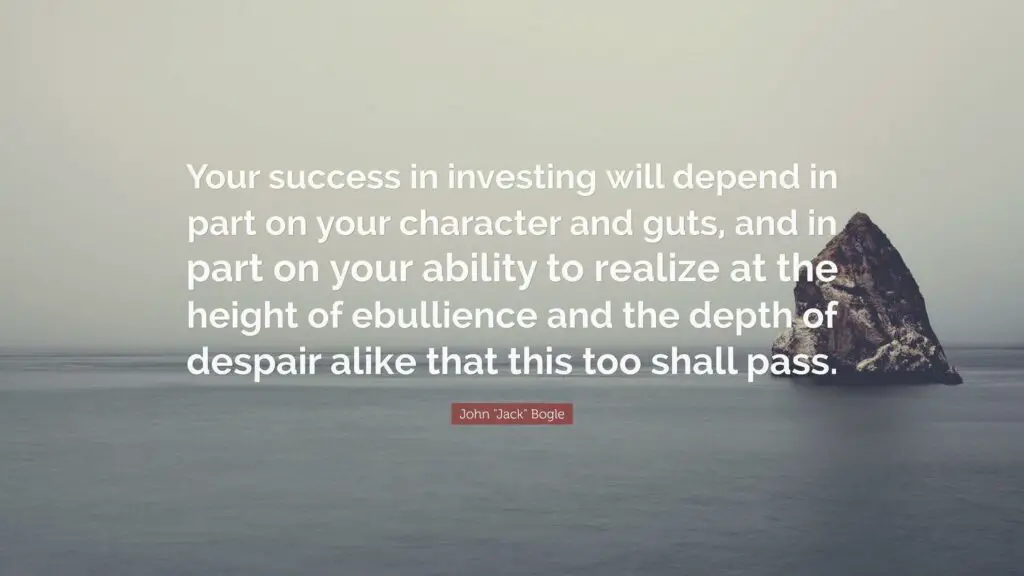
We’ve seen other investing quotes about the highs and lows of the market, but what is particularly noteworthy about this quote is that it highlights the importance of the balance between guts and steadiness. You need both the right kind of character, one willing to take risks. Still, you must also have the ability to remove yourself emotionally and remember that both the highs and lows of the market are temporary.
Seth Klarman

Seth Klarman is a billionaire investor, hedge fund manager, and writer. Klarman runs one of the world’s most significant hedge funds, Baupost Group, which manages $27 billion. Klarman is considered the “Oracle of Boston” and has become a billionaire thanks to following in Graham and Buffett’s footsteps.

Those who focus only on economics often fail to succeed because they fail to account for the psychological elements in play. Those who focus only on the psychology of the markets also often fail to succeed because they fail to account for the equation’s economic factors. Successful investing requires always keeping both in mind.
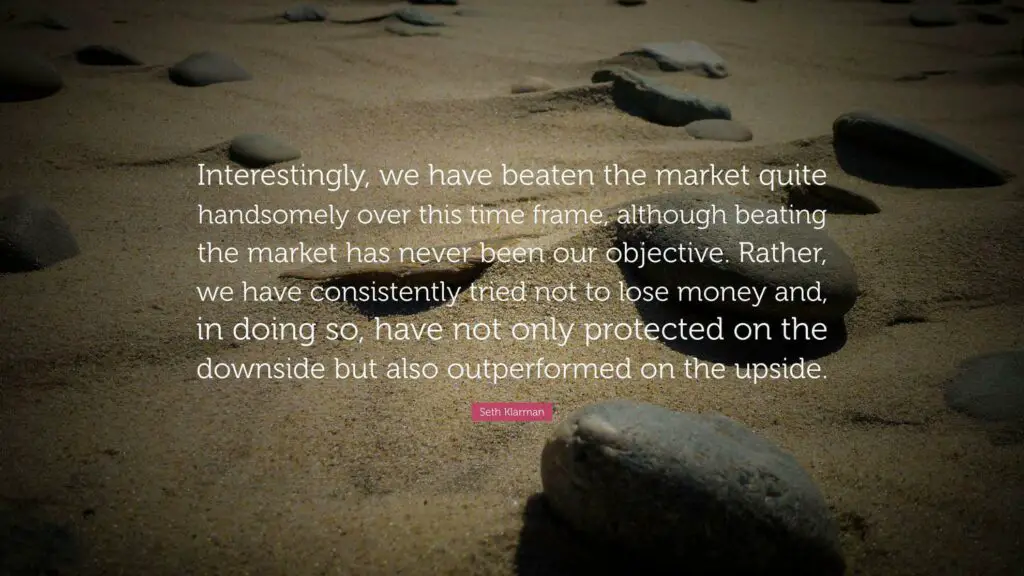
Good investors focus on returns; great investors focus on risk. The most important thing is to stay in the game. If you take care of the downside, the upside will take care of itself.
Albert Einstein

German physicist and winner of the Nobel Prize for physics, Albert Einstein, may not be known for his investing. Still, as one of history’s most well-known geniuses, he’s worth learning from and has a compelling investing quote attributed to him.

Compound interest is the most potent and valuable variable in investing that we can control – time. Young people often assume that investing is for later life, but the younger you are, the more time you have. The sooner you can begin investing, the better, even if the sum is small. Compound interest is often underappreciated – but not by Albert Einstein or Indian farmers.
The Bottom Line
There’s a lot of wisdom in the above quotes. Interestingly enough, all of the greatest investors share a similar market mindset. Something to think about. Do you have a favorite investing quote? If so, let me know in the comments below, and if enough agree, I’ll create a desktop background image for it and add it to this post!